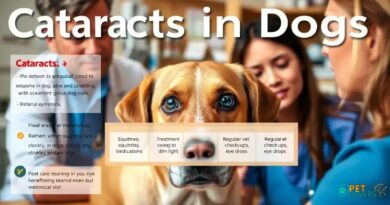What is Zinc Deficiency
What is Zinc Deficiency in Dogs?
Zinc deficiency in dogs is a nutritional disorder that occurs when there is an insufficient amount of zinc in a dog’s diet. Zinc is an essential trace mineral that plays a crucial role in various bodily functions, including immune response, skin health, and wound healing. Without adequate zinc, dogs can experience a range of health issues, making it vital for pet owners to understand the implications of this deficiency.
Symptoms of Zinc Deficiency
The symptoms of zinc deficiency in dogs can vary widely, but common signs include hair loss, particularly around the eyes and mouth, as well as dry, flaky skin. Dogs may also exhibit lethargy, reduced appetite, and an increased susceptibility to infections. In severe cases, zinc deficiency can lead to more serious health problems, such as delayed wound healing and skin lesions, which can be distressing for both the pet and the owner.
Causes of Zinc Deficiency
Zinc deficiency can arise from several factors, including an unbalanced diet that lacks sufficient zinc-rich foods. Certain dog breeds, such as Siberian Huskies and Alaskan Malamutes, are more prone to zinc deficiency due to genetic factors that affect zinc metabolism. Additionally, conditions that impair nutrient absorption, such as gastrointestinal disorders, can also contribute to this deficiency, making it essential to monitor your dog’s overall health.
Diagnosing Zinc Deficiency
Diagnosing zinc deficiency in dogs typically involves a thorough veterinary examination, including a review of the dog’s diet and medical history. Blood tests may be conducted to measure zinc levels and assess overall health. It’s important for pet owners to consult with a veterinarian if they suspect their dog may be suffering from zinc deficiency, as early diagnosis can lead to more effective treatment.
Treatment Options for Zinc Deficiency
Treatment for zinc deficiency in dogs usually involves dietary adjustments to include zinc-rich foods or supplements. Veterinarians may recommend specific dog foods that are formulated to provide adequate zinc levels. In some cases, zinc supplements may be prescribed, but it’s crucial to follow the veterinarian’s guidance to avoid potential toxicity from excessive zinc intake.
Preventing Zinc Deficiency
Preventing zinc deficiency in dogs starts with providing a balanced diet that meets their nutritional needs. High-quality commercial dog foods often contain the necessary vitamins and minerals, including zinc. Pet owners should also be cautious about feeding homemade diets without proper guidance, as these can easily lead to nutritional imbalances. Regular veterinary check-ups can help ensure that your dog maintains optimal health and nutrition.
Impact of Zinc Deficiency on Skin Health
Zinc plays a vital role in maintaining healthy skin and coat in dogs. A deficiency can lead to dermatitis, which is characterized by inflammation, redness, and itching. Dogs with zinc deficiency may also develop secondary infections due to compromised skin barriers. Ensuring adequate zinc levels is essential for preventing these skin issues and promoting overall dermatological health.
Long-term Effects of Zinc Deficiency
If left untreated, zinc deficiency can have long-term effects on a dog’s health. Chronic deficiencies may lead to persistent skin problems, weakened immune function, and stunted growth in puppies. Older dogs may experience a decline in overall vitality and increased susceptibility to infections. Therefore, addressing zinc deficiency promptly is crucial for maintaining a dog’s quality of life.
Consulting with a Veterinarian
If you suspect your dog may be experiencing zinc deficiency, it is essential to consult with a veterinarian. They can provide tailored advice based on your dog’s specific needs and health status. Regular veterinary visits can help catch nutritional deficiencies early, ensuring your furry friend remains happy and healthy for years to come.



